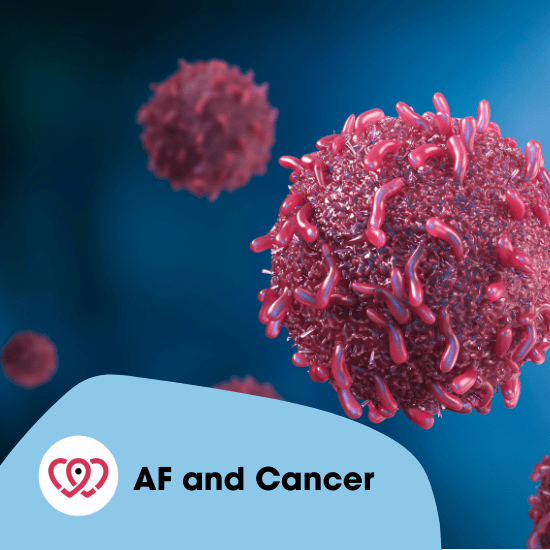Experience of Luke (54): “AFib has forced me to live more consciously”
Atrial fibrillation (AFib) – a term I first heard at 18 while camping in Florida with my mom. It happened during a tent setup in the Everglades. There, in the dark and pouring rain, I realized my heart was racing. Back then, I thought it was because I was scared to camp at that location. However, looking back, it was the moment I had my first atrial fibrillation episode.
Increase in AFib Attacks
Back home, the cardiologist told me that atrial fibrillation would increase over the years. In my thirties, I began to experience it more frequently, to the point where I spent entire nights with a pounding heart every three weeks. I always felt a building tension near my left shoulder blade before the AFib attack. After the episode, the tension would fade. But it quickly started building up again.
Cryoablation provided relief but didn’t stop AFib
Around my forties, I had a cryoablation, which brought significant relief. However, atrial fibrillation returned after consuming alcohol. That was when I decided to investigate and discover my personal triggers.
Identifying my personal AFib triggers
I started reading about the experiences of others online, which gave me many insights. I tried various approaches, from medications to supplements. I also meticulously tracked what worked and what didn’t for me.
Ultimately, I identified some significant triggers for my atrial fibrillation:
- Alcohol
I am abstaining from alcohol to reduce my attacks. - Sleep deprivation
I now ensure a minimum of seven hours of sleep and got checked for sleep apnea. Fortunately, I didn’t have it. - Stress
While I can’t always control stressful situations, I try to manage stress factors that I can influence. - Diet
I avoid overeating and aim for a primarily vegetarian diet. - Caffeine
I limit caffeine intake to a maximum of two cups of coffee per day. - Carbonated beverages
I try to avoid fizzy drinks or drink them very slowly. - Sudden intensive exercise
I start with a gentle warm-up before intense physical activity. - No smoking and no drugs
I didn’t do that already, but now I wouldn’t consider it at all.
Searching for supplements that help with AFib
Despite all these changes, I wasn’t there yet. I continued to search for ways to improve my life with atrial fibrillation. Through this forum, I connected with people who had tried L-Glutamine to reduce their afib. Unfortunately, it didn’t work for me, but it motivated me to keep searching for supplements that could help.
Ultimately, I discovered L-Taurine, which proved effective against stress, one of my major triggers. I also added L-Arginine to prevent palpitations. But after more research, L-Citrulline turned out to be even more effective in regulating my heart rate.
Atrial fibrillation made me care for my body
While atrial fibrillation comes with many downsides, it also had benefits for me. By making significant lifestyle changes, I became much healthier and feel much better. My AFib diagnosis forced me to live more consciously, take good care of myself and understand my body.
Atrial fibrillation has no one-size-fits-all treatment
As I look back on my journey with atrial fibrillation, I realize that there is no one-size-fits-all solution. Everyone with this condition has their unique triggers and approaches that work. It’s a trial-and-error process, but by continuing to search and experiment, we can find ways to improve our lives.
If you, like me, are living with atrial fibrillation, know that there is hope. Listen to your body, seek support from fellow sufferers, and remain open to new approaches. Together, we can learn to cope with this challenging condition and strive for a healthier, happier life.
Do you know someone who might be interested in this?






